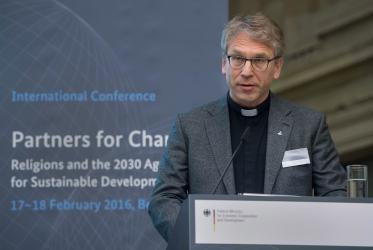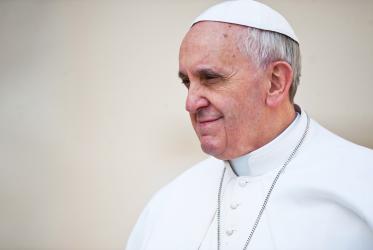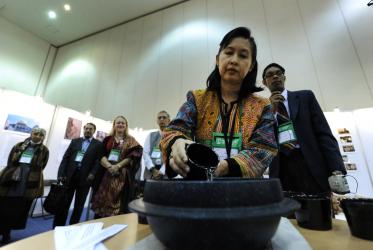Displaying 1 - 16 of 16
05 October 2021
Rethinking Ecological Relationships in the Anthropocene era
11 - 13 February 2021
G20 summit: call to pray for peace in Hamburg
07 July 2017
Plans for 2017 decided by WCC Executive Committee
01 December 2016
Grand Imam calls for collaboration against violence and poverty
06 October 2016
Weaving together personal faith and climate change
23 September 2014
Religious leaders highlight significance of water at WCC assembly
04 November 2013











